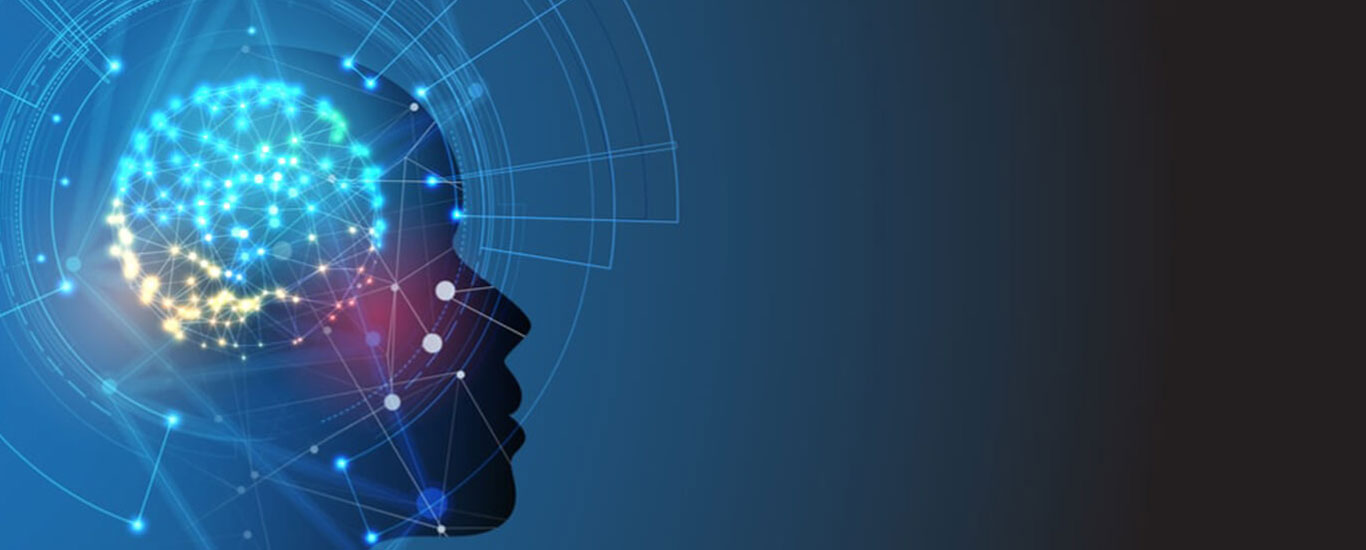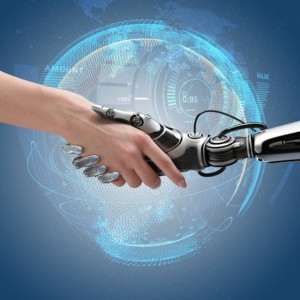
Would you like to start a conversation with other industry leaders to brainstorm a challenge or to just know more on a particular topic?
Engage in online discussions with your Peers
Start NowThe thing which I have learned from my experience in HR is that the technology we use changes constantly, but the human fundamentals often remain the same. In one of my discussions with a veteran of the HR industry, he surprised me by throwing an answer to my question.
My ask was to know his thought on what HR professionals have failed at in the past 20 years. His answer was “being organized”.
Nothing to be surprised about, except that it came from a person who spent most of his career dealing with the notoriety of unionism.
My curiosity made me plunge into a deeper discussion with him on the idea of being organized from an HR professional’s perspective. The changing dynamics of success stories moving from initiatives to sustenance of the tacit knowledge of human resource has largely been missed – and there lies the future challenge. Clearly it is high time that, as technology is advancing, HR professionals should also adapt to its advancements. A hands-on approach to the latest technology with some smart thinking can bring in the change. This is where AI is playing a vital role in the industry.
The changing dynamics of success stories moving from initiatives to sustenance of the tacit knowledge of human resource has largely been missed – and there lies the future challenge.
The Need for Change
Human Resource is supposed to be the intermediary between the organization and the people. It is supposed to first lay the foundation and then manage the rules of engagement. Our biggest challenge in developed and rapidly developing economies has been the shortage of skilled talent pool. As this demand bloats with time, the turf war between economies is making it grim for uncompetitive economies and the organizations working within its periphery.
Looking at Indian HR practices specifically, we mostly fail to make effective innovations in the critical operational fields, such as recruitment processes and service coordination. Recruitment platforms and social hiring as an example, have grown rapidly in acceptance but the next level of thinking in terms of combining the initial fresh hire training with recruitment is still absent. This is specially a huge gap in most HR teams’ ways of working as most often the highest levels of attrition are recorded during the initial period of on-boarding, training and ramp-up.
Talent acquisition can be one of the most time consuming and frustrating aspects of our business. Of a typical outreach program, only 20% or so potential candidates are looking for change. It is tough for any recruiter to meet the ever demanding harsh deadlines and special requirements, not to mention the piles of sometimes irrelevant applications and resumes that need to be read and understood. With retention accountability and expectation of superior candidate experience, the job becomes even harder. An organization’s candidate experience is directly associated with their employer brand. Failing to attend to your employer brand can be detrimental to your organization.
According to a CareerArc survey, nearly 60% of candidates surveyed said they had a poor candidate experience, and 72% of those candidates shared that experience online or with someone directly. The emerging HR technology throughout the last decade has strived to take away many such frustrations while improving candidate experience and quality of hire.
AI is the Present and Future
Artificial Intelligence, machine learning, and other “smart” technologies are no longer something in the far-off future. In fact, they are already driving many of the innovative recruiting and hiring technologies available right now.
For instance, many recruiters find it extremely tedious to respond to all applications received. 65% of candidates (CareerArc Candidate Experience Study) say they either never or rarely receive employer notice of the decision made on their application. 60% of applicants say “better communication throughout and after the application process,” would have the most positive impact. A CareerBuilder survey found that 40% of candidates feel the application process has become increasingly difficult.
Using AI, the feedback from the candidate can further be applied to the selection process enabling the recruitment team to easily see how each candidate ranks from the applicants selected by the platform. Having AI integrated into the recruiting process would allow candidates to ask relevant questions throughout the application process as well as provide meaningful answers from the recruitment team. Thus most of the tedious, cumbersome and time-consuming processes of recruiting are gradually being automated, which means recruiting teams are getting the opportunity to be more strategic than ever before.
...if the HR and recruiting products created today are not as easy to use as the apps on our phones, people just will not use them.
Impact on Recruiters in AI Era
AI is at the top of the hype cycle right now. Basically AI is a mechanism that takes a huge amount of data and crunches it into something one can easily interpret or analyse. You can ask Alexa (Amazon's voice controlled digital assistant) what the climate is and it lets you know. All it did was look into the climate report on the web, transform that information into words and shared it with you. In the hiring context, AI will be able to calculate the probability that one person will be a better hire than another by looking for patterns that come closest to the criteria you input. That is basically what recruiters do in their heads manually when considering candidates — weighing some attributes more than the others, maybe at a subconscious level, which at times, leads to a wrong selection.
It is in crunching the large unstructured data where AI is playing the important role. We all use structured data, like figures on a spread sheet that can be counted and multiplied. Let us assume we interviewed 35 people, made 14 offers and had 5 accepts. That is expressing or deriving the results from structured data. But being able to look at what someone says, or writes, and understand it and make decisions based on it, such as reviewing resumes and online profiles — that is using unstructured data. That is where AI is attempting to do better than recruiters do.
AI can obviously also process data much more quickly than the human mind, but it needs a lot of data to be of value. "The more data you have, the better your decisions. You need thousands of data points to get accurate predictions. If you're only using hiring data from 100 or 150 people, you're getting highly skewed results" (Sourced from Roy Maurer’s September 2017 article on Talent Acquisition).
How AI Will Affect Recruiting
Chatbots are an excellent example of emerging AI based social media messaging apps. These are artificial conversational entities used in apps like LinkedIn or Facebook messenger, wherein the app automatically replies to your message and most of the time delivers an accurate response. So even the most basic chatbot can be useful for initial candidate interactions and can improve careers’ site retention. The average chatbots can schedule interviews and screen candidates with basic questions. More sophisticated ones can match candidates and do advanced search.
Additionally, AI can enhance workforce planning - and that is where it can be incredibly helpful. It can find patterns among heaps of data. AI will soon transform Recruitment from largely a transactional function — scheduling, interviewing, clerical routine stuff — into something that truly adds value to the company.
Challenges that need to be Addressed
The quality issues of the hires coming from our education system, unfortunately happens to be the next source of worry. With organizations and businesses investing significant energy and time, it is a natural obligation of HR, from a business partner perspective, to be innovative and move towards influencing quality and also relevant curriculum in the field of education. The tying-up of corporates with the fine balance of time-relevant education practices is an opportunity which is rarely being demonstrated by the HR fraternity, leaving some honorable exceptions aside. Employee retention naturally is also tied up to the same framework.
The other aspect of the same issue is to move to the more unconventional forms of hiring. Contracting is likely to be the next big thing in the Indian job market, and the change management it will require will be tough. Proactive work on Compensation & Rewards is the right solution to this upcoming trend. For instance, offering personalized packages tells the employees that their personal needs are as valid as the company's business goals, and this is being justifiably enabled with the intervention of AI's tireless computing power. The HR professionals can leverage company analytics to predict employee trends and identify workforce challenges that would otherwise be overlooked, and therefore efficiently administer flexible compensation to critical talent groups. There are organizations which have found some success in this space but the learning needs to be shared. It is being concentrated to a few industries and remains to be seen as a popular choice with future employees and executives.
The natural or conventional role of HR has been optimizing productivity but this has to move on from the abstracts of motivation and training imperatives. Identifying poor work practices and areas of resource crunch are examples of moving to the next level of maximizing efficiencies through technology.
Disruptive initiatives both in terms of technology and internal consulting practices of governance and service frameworks have changed the new age HR. Project Management and communication at a constant pace of change has become the need of the hour for the HR professional. In some of the surveys conducted with global samples of professionals, it is to our surprise that we find the majority acknowledge the job for HR as being policies, processes and people management programs. Only a few enlisted the HR job role to be connecting the dots to enhance resource output, engagement with long term vision, business financials and technology together. This strategic alliance of these elements enables consistency in improvement objective of increased productivity without additional strain of size, cost or infrastructure.
Conclusion
Globalization in its youth had benefitted a lot of economies. However, the essence of the continuity lies in addition and improvement. Constant environment changes are leading to newer demands and several issues in HR domain. We are working in a compact yet globalized ecosystem where the need is to influence the input at our end, matching it with the output from the ecosystem, thus influencing the output that we further want to achieve, which is aligned to the organization vision. This can be managed when we have a technologically advanced and informed HR which is “organized” and is serious for its next role as influencers of quality.
ABOUT THE AUTHOR

An accomplished business professional, with proven results in developing and leading world-class HR programs and operations across geographies to complement corporate strategy, Priyanka Anand is associated with Ericsson as Head of Human Resource MOAI (South East Asia, Oceania and India) and involved in driving global people strategy in the Market Area. With a team of more than 60 HR professionals cutting across Countries, Customer Units and SME areas, together supporting 17000 + employees present across MOAI.
In her previous role she was Vice President and Head, HR Global Operations at Ericsson since April 2014 and was Vice President and Head – Human Resources at Ericsson Global Services, India from July 2010 till April 2014. She has also worked with Colt Technologies, STG and Manpower and holds the management degree in HR.






